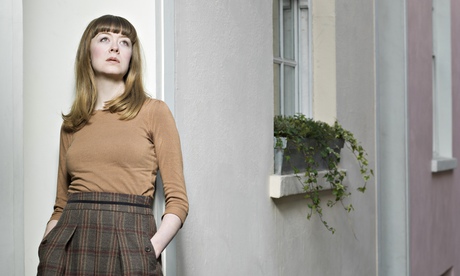
According to Mental Health Foundation statistics, one in four of us experiences psychological problems every year, so it seems odd that few novels directly address mental illness. Those that do, rarely work, tending towards sensationalism, romanticisation or gothic-style fantasy; of those that succeed, none in recent years is as accurate, or as artistically accomplished, as Grace McCleen’s extraordinary new novel. Setting aside the verve and dark lyricism of its prose, and the keenness of observation (especially of the natural world), what shines through is a real understanding, not only of what it is to be mentally ill, but also of the everyday dynamics of mental health institutions and the power struggles that underlie the psychiatric profession. Games of manipulation and deceit replay the games played in society at large in a hothouse environment, where the inmates, carefully medicated and suspended in time, “have lost the knack of remembering” and therefore of being themselves.
The Offering is a first-person account of insanity by an unsettlingly self-aware mental health patient in her mid 30s named Madeline. It is clear, at the beginning of the book, that she has recently committed some terrible act of violence, though she seems unaware of this. She also seems not to understand the reasons for her being brought to Lethem Park Mental Infirmary in the first place. Nevertheless, by way of a series of flashbacks, both to the recent past and to the cloudy world of her childhood, she reveals the parallel series of events that, first, led to her incarceration at the age of 14, and, second, drove her to attack a doctor who, on the surface, was only trying to help secure her release after 20 years of being “fenced off” at Lethem. (“It is just as well we are fenced off,” she says.“If we weren’t, what would there be to tell us where the crazy people end and the rest of the world begins?”)
In both narratives, the agent of Madeline’s fate is a domineering male: as a child, she had been brought up by her fundamentalist lay preacher father to trust entirely in “the ‘evident demonstration of realities not yet beheld’, a definition I am also aware comes close to describing psychosis, for behind both faith and delusion lies unshakeable belief”. This trust leads the family, through a series of disastrous life choices, to a deceptively idyllic old farmhouse that, rotting from the inside and remote from the work Madeline’s father needs to feed his wife and child, becomes a kind of tainted paradise. It’s reminiscent of the frontispiece to the family bible, “the garden in the book” that, while beautiful, is contained within mildew-peppered covers, “fusty, acrid, furtive; suggestive of things ravaged yet fecund with time”. Meanwhile, the more recent man in Madeline’s life, the arrogant, dandyish Dr Lucas, forces her to relive her childhood trauma, ostensibly with the aim of helping her to recover, though his real motive is to prove, experimentally, the efficacy of his own radical – and dangerous – methods.
Both these men take the place of God in Madeline’s life: her father a judgmental Old Testament deity with an all-seeing eye; Dr Lucas an enigmatic, classical one. “The windows here are too high to see out of,” Madeline notes. “I often think, when the sky is white and leaden as it is today, that they resemble the great sleepless eyes of classical gods, inscrutable in their vacuous watchfulness. There is something about those windows that reminds me of Dr Lucas.” Powerless as a child and, later, as a mental health patient, Madeline feels this light as a divine yet unbearably oppressive force: “The light here erases me,” she says. “I wake to the light and go to sleep in it.”
Subject to this constant, judgmental glare, it comes as no surprise that the young Madeline finds herself morally wanting; in an attempt to expiate her failure, she resorts to a series of sacrifices, offerings she makes to appease the Father-God who sits above her. As an adult, however, she revolts: she sees through Lucas, and she knows that, were she to be released, she would only end up in some “halfway house between this world and the next”. With nowhere to hide from the stark light of judgment, Madeline stages a desperate coup and, in so doing, imaginatively recovers her child self. Wonderfully suspenseful and deeply moving, The Offering is full of insights about the nature of madness. It is also keenly observant of the ways in which men play god and of the power of the oppressed imagination to create a inhabitable world, even under near-intolerable conditions.
John Burnside’s Something Like Happy is published by Jonathan Cape.

